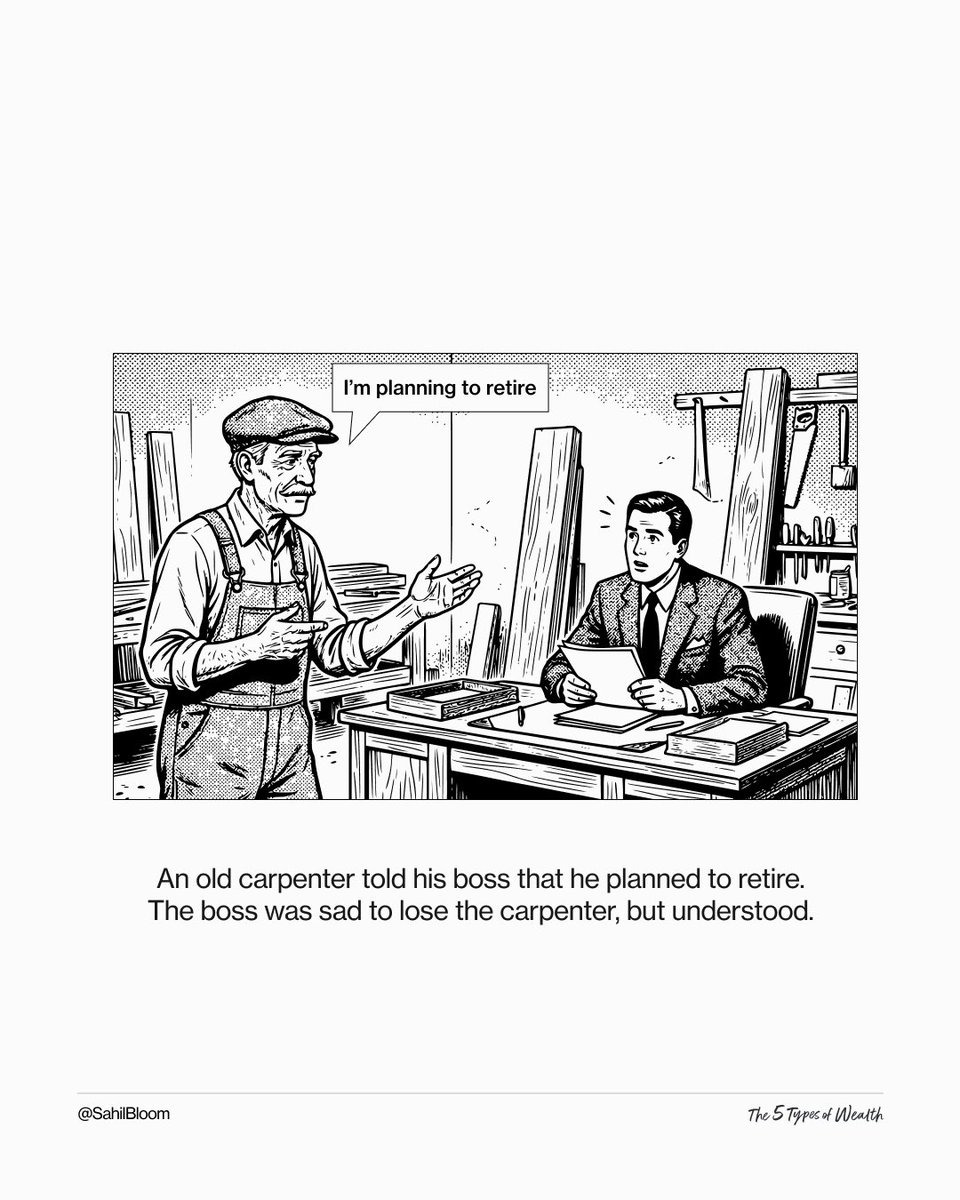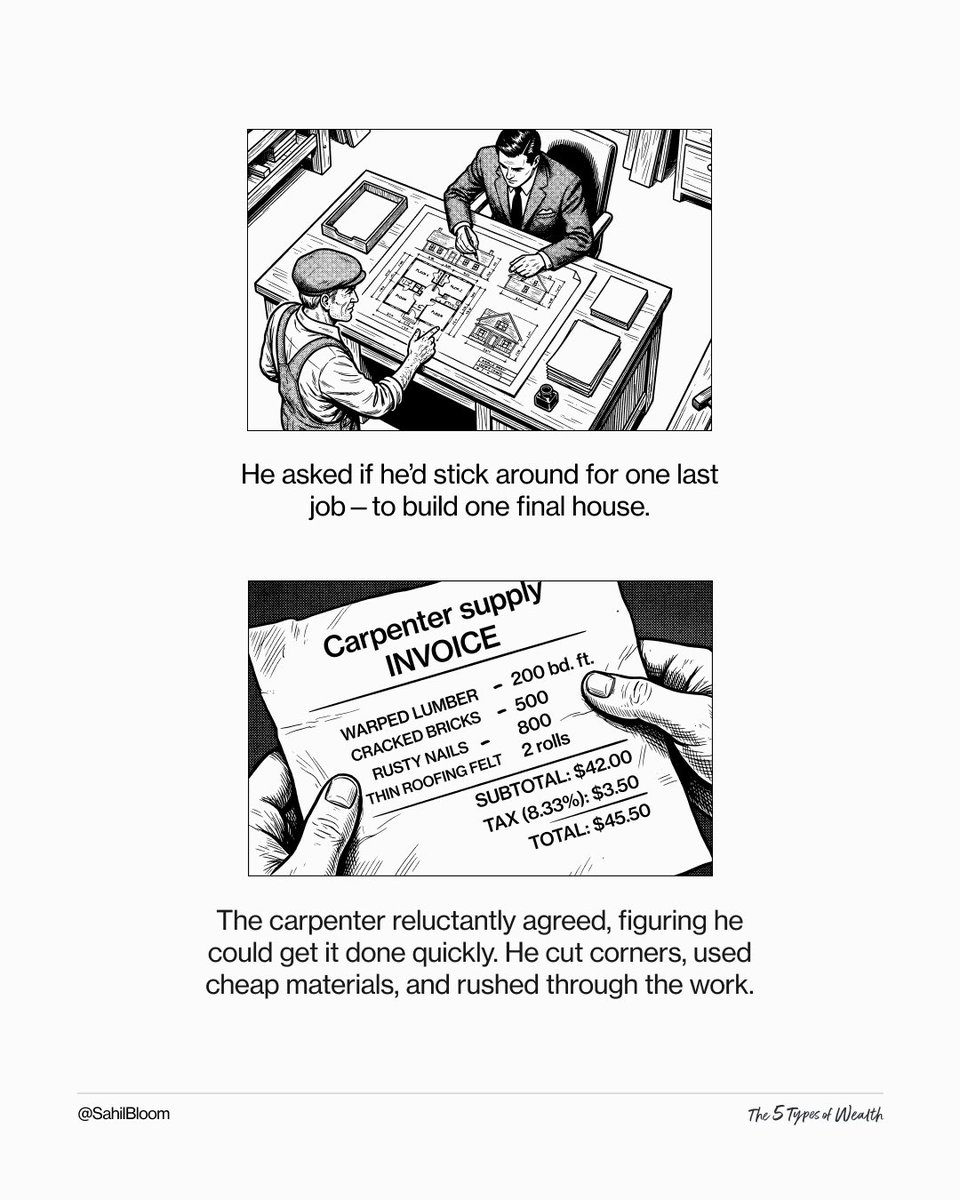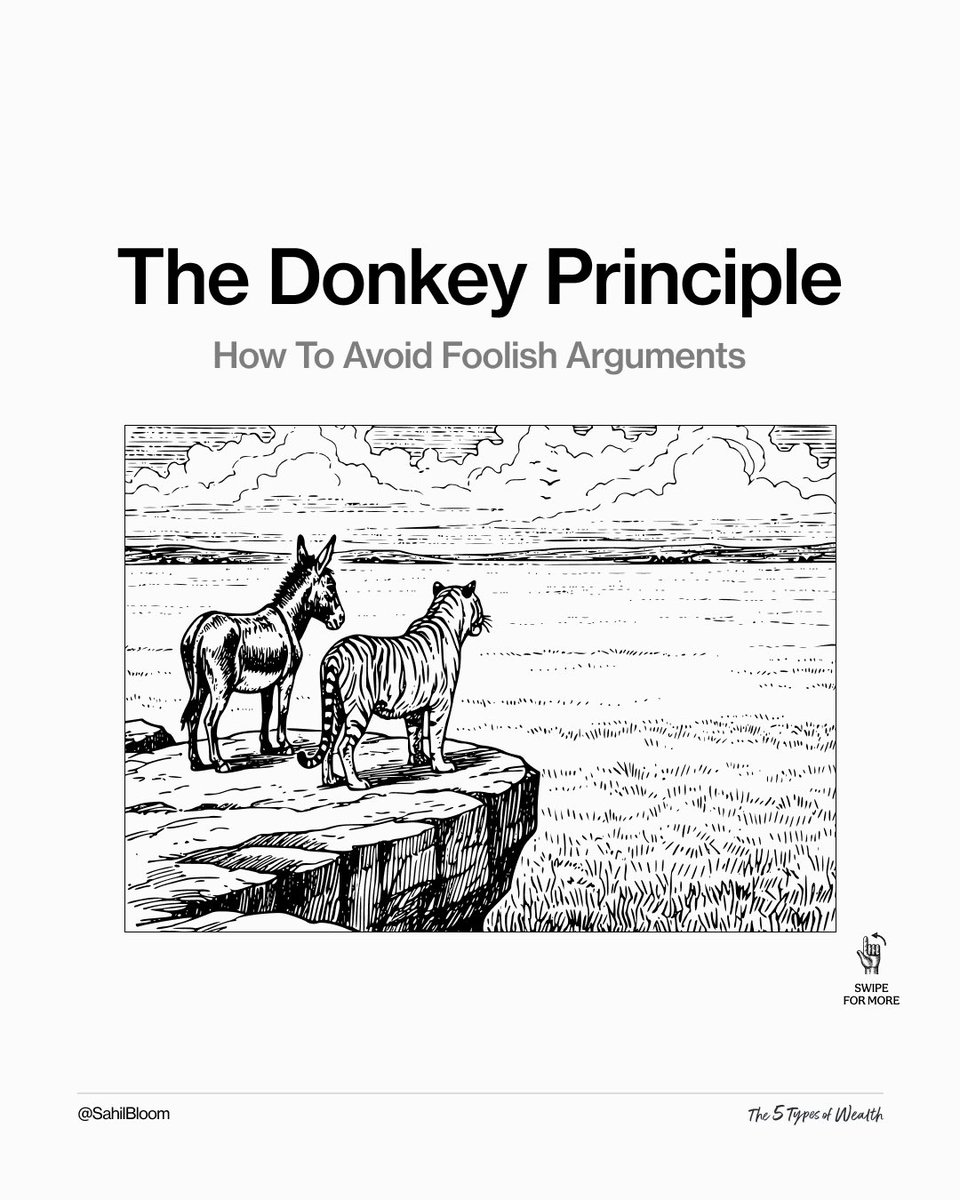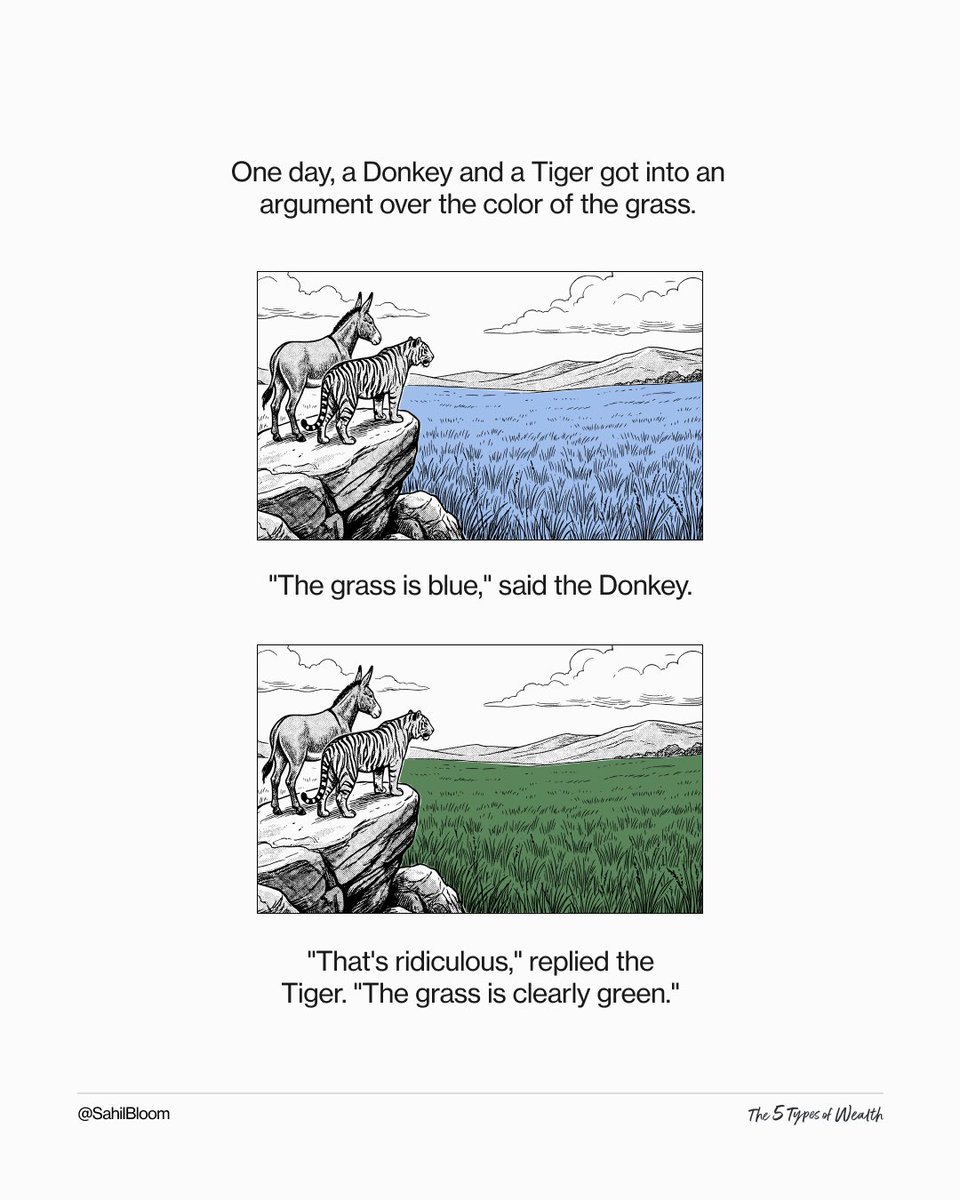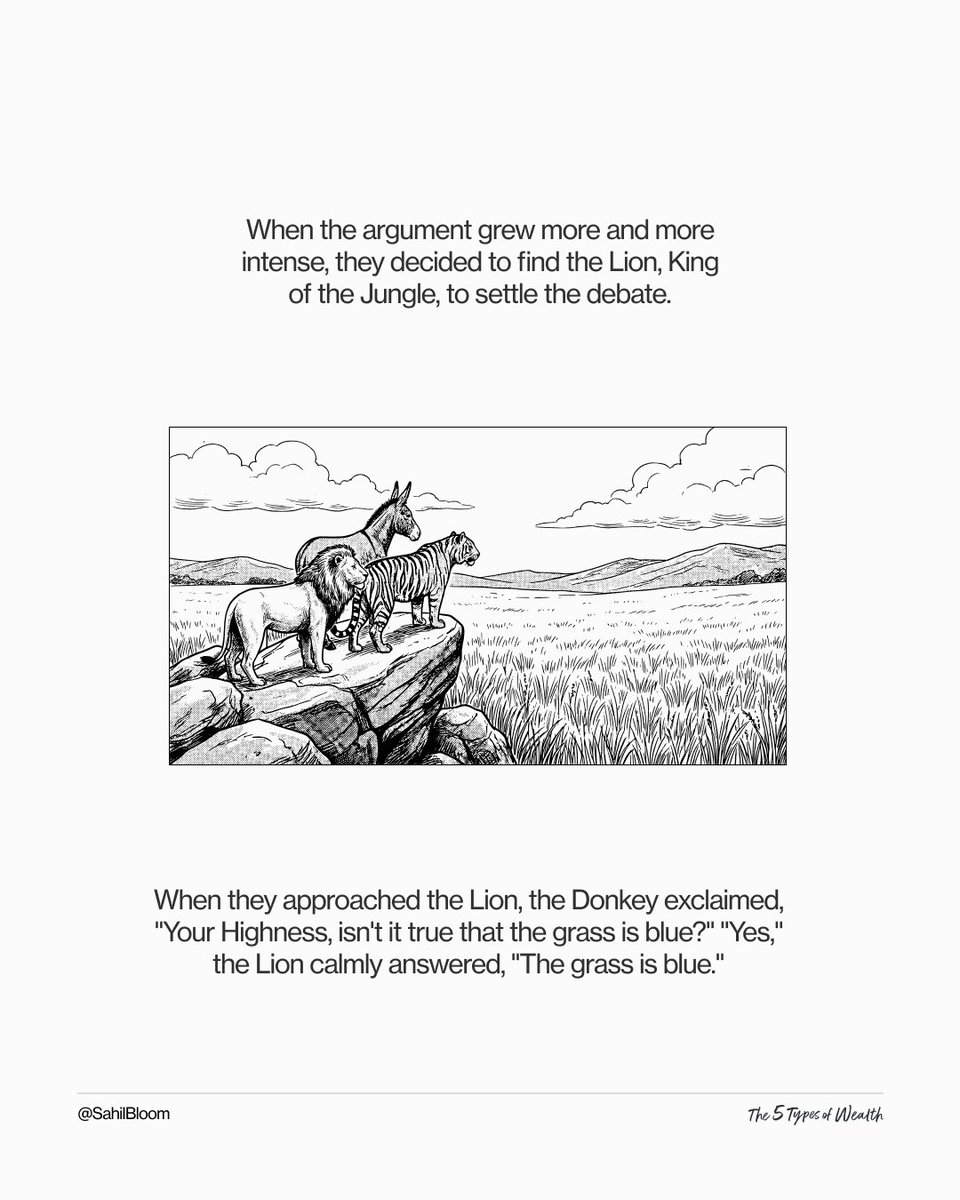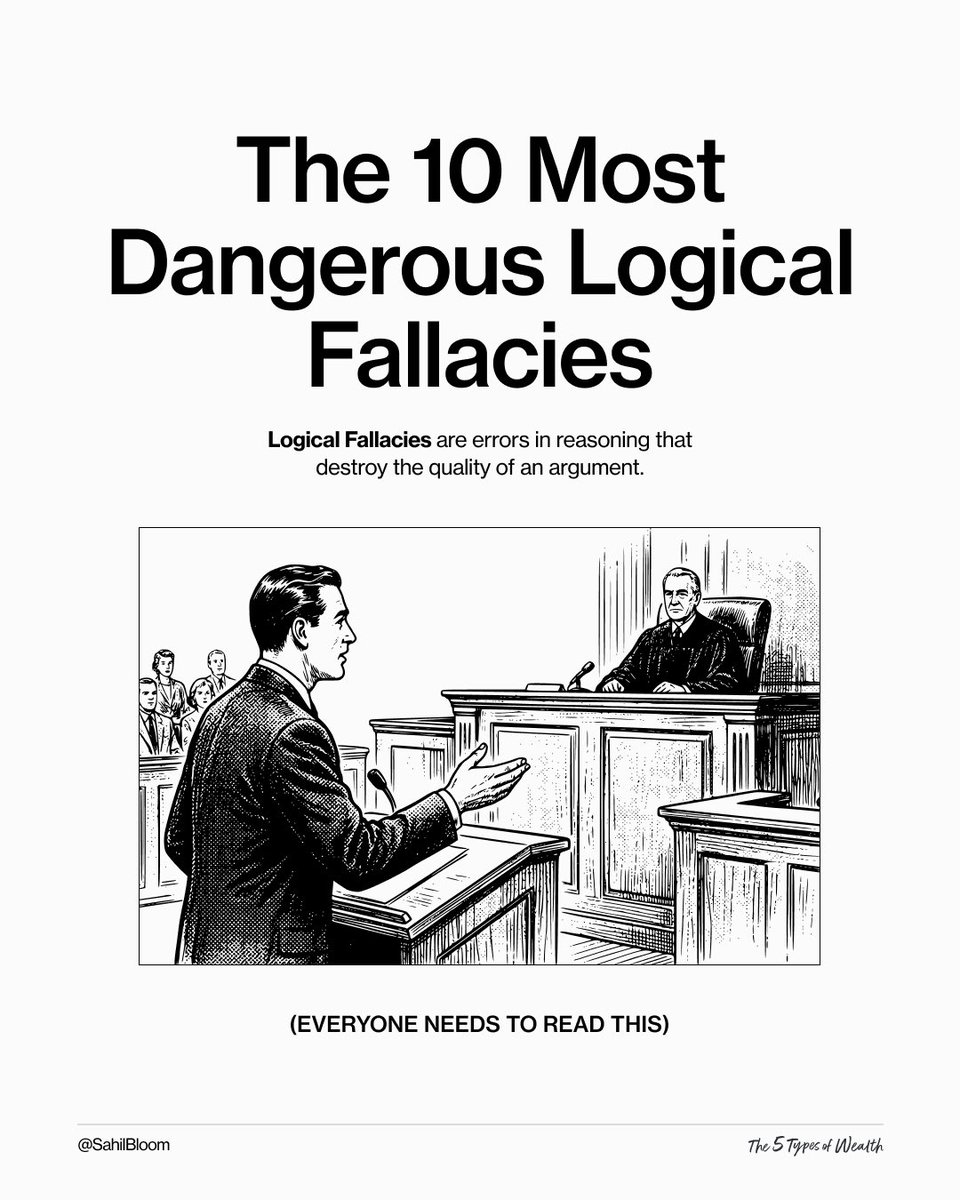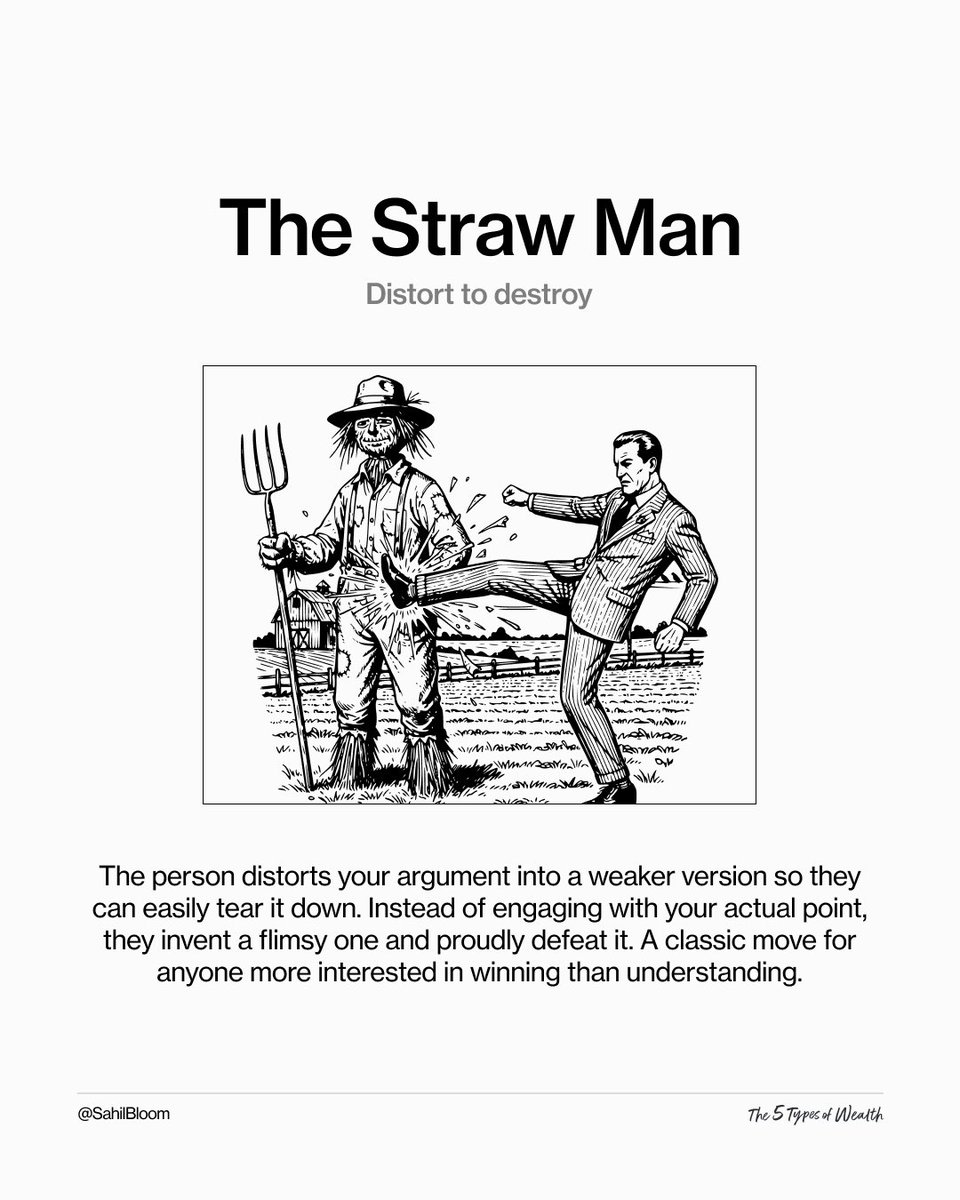How to find (and operate in) your Zone of Genius:
A few weeks ago, I shared a thread—How to Win (without talent or luck)—that got a lot of attention.
One of the most popular insights I shared was the idea of operating in your Zone of Genius.
But I got a lot of questions about how to practically achieve that...
One of the most popular insights I shared was the idea of operating in your Zone of Genius.
But I got a lot of questions about how to practically achieve that...
https://twitter.com/SahilBloom/status/1449339851124445185
Your Zone of Genius is where your interests, passions and skills align.
Operating in it means you stop playing *their* games and start playing *yours*.
This thread shares my framework—built through personal struggle—for finding and operating in your Zone of Genius:
Operating in it means you stop playing *their* games and start playing *yours*.
This thread shares my framework—built through personal struggle—for finding and operating in your Zone of Genius:
First, let's get one thing straight.
Everyone has a Zone of Genius.
"Genius" here is a relative term, not an absolute.
It's not about being top 1% at something—it's about the unique space where your relative strengths are accentuated (and relative weaknesses masked).
Everyone has a Zone of Genius.
"Genius" here is a relative term, not an absolute.
It's not about being top 1% at something—it's about the unique space where your relative strengths are accentuated (and relative weaknesses masked).
Furthermore, everyone’s Zone of Genius is different and unique to them as an individual.
The goal of a founder, startup, or organization, therefore, is to build a team with complementary—not conflicting—Zones of Genius.
This is where 1+1=3!
The goal of a founder, startup, or organization, therefore, is to build a team with complementary—not conflicting—Zones of Genius.
This is where 1+1=3!
Sounds great—but how do you identify your Zone of Genius and operate more frequently in it?
My framework is effectively 4 steps:
(1) Experiment & Collect
(2) Build Your Matrix
(3) Identify Your Zones
(4) Execute
Let's walk through each one...
My framework is effectively 4 steps:
(1) Experiment & Collect
(2) Build Your Matrix
(3) Identify Your Zones
(4) Execute
Let's walk through each one...
Experiment & Collect
The notion that you should know what you want to do with your life by the time you graduate college is one of the greatest lies you've been told.
Don't buy a car without a test drive.
Experiment and collect data in order to make informed decisions.
The notion that you should know what you want to do with your life by the time you graduate college is one of the greatest lies you've been told.
Don't buy a car without a test drive.
Experiment and collect data in order to make informed decisions.
Experiment wildly. Try different things. Test out different working styles.
This doesn't mean skipping from job to job—you can experiment on nights, on weekends, etc.
The goal is to build a wide base of experiences from which you can assess your competencies and passions.
This doesn't mean skipping from job to job—you can experiment on nights, on weekends, etc.
The goal is to build a wide base of experiences from which you can assess your competencies and passions.
The data collection should be both internal (your own perspectives) and external (the perspectives of others).
To collect data from those around you, ask about their experiences working with you:
What are you great at? What are you bad at? When do they perceive you as in flow?
To collect data from those around you, ask about their experiences working with you:
What are you great at? What are you bad at? When do they perceive you as in flow?
Build Your Matrix
The next step is to take all of the data collected from your experiments and build a skill map.
Imagine a sheet listing every possible skill and capability.
For every single one, there is a spectrum from 0 (min competency) to 1 (max competency).
The next step is to take all of the data collected from your experiments and build a skill map.
Imagine a sheet listing every possible skill and capability.
For every single one, there is a spectrum from 0 (min competency) to 1 (max competency).
You can theoretically place yourself somewhere on that spectrum for each.
This is your skill map—it tells you your competency level across a range of skills.
But competency is just one critical plane—passion is the other.
To visualize this, I like to think of it as a matrix:
This is your skill map—it tells you your competency level across a range of skills.
But competency is just one critical plane—passion is the other.
To visualize this, I like to think of it as a matrix:

With this matrix as a guide, you can place each skill in one of the four quadrants.
• High Competency, High Passion
• High Competency, Low Passion
• Low Competency, High Passion
• Low Competency, Low Passion
The matrix is a powerful visual tool to bring this to life.
• High Competency, High Passion
• High Competency, Low Passion
• Low Competency, High Passion
• Low Competency, Low Passion
The matrix is a powerful visual tool to bring this to life.
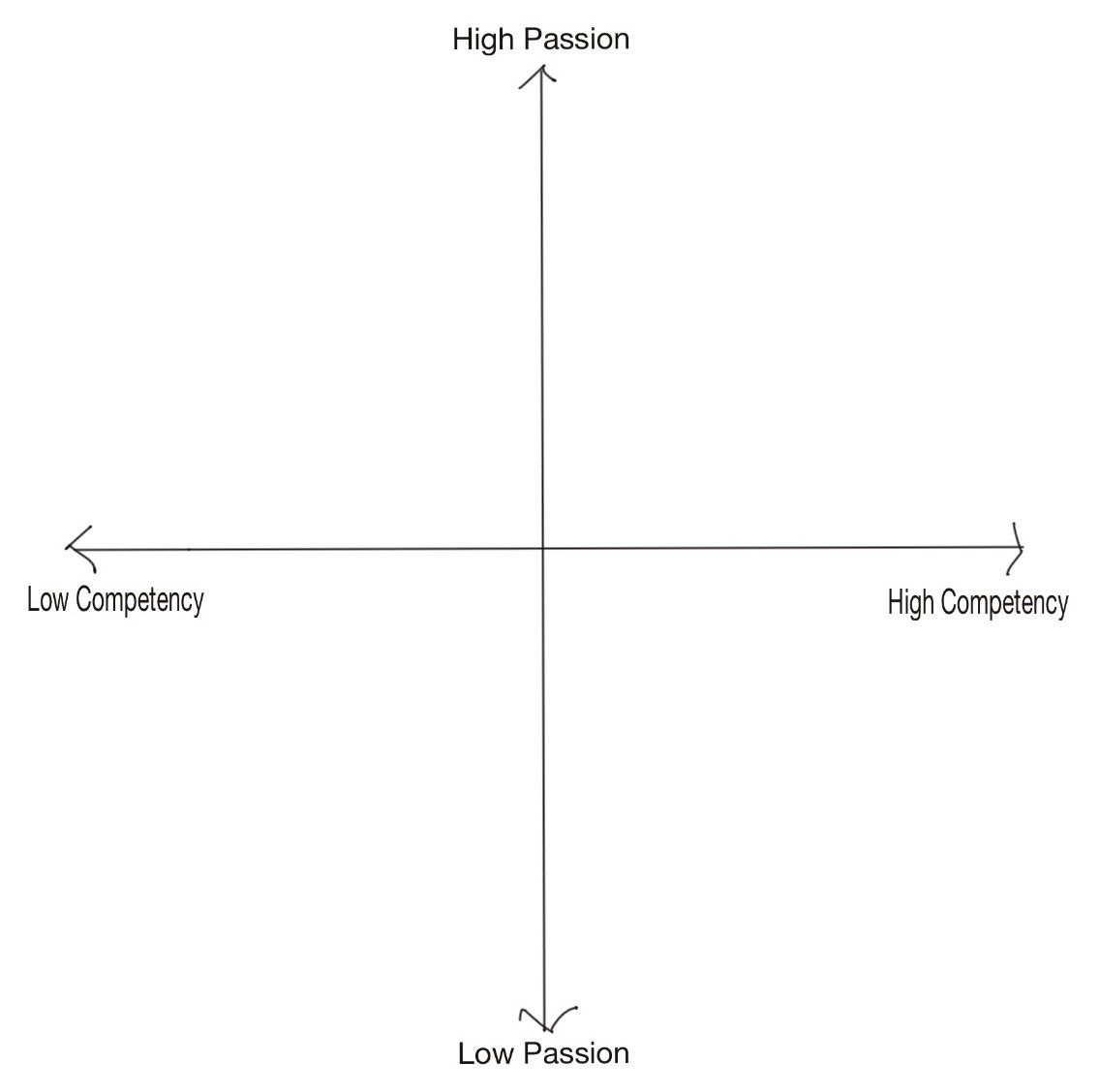
Identify Your Zones
The 4 key zones to identify on your matrix:
(1) Zone of Incompetence: you are bad at these things; outsource to others who are good at them.
(2) Zone of Neutrality: you are ok at these things; outsource to others who are as good or better at them.
The 4 key zones to identify on your matrix:
(1) Zone of Incompetence: you are bad at these things; outsource to others who are good at them.
(2) Zone of Neutrality: you are ok at these things; outsource to others who are as good or better at them.

(3) Zone of Excellence: you are excellent at these things, but you don’t love them
(This is the "danger zone”: you will be asked—and tempted—to work here given your competency, but it can be a trap)
(4) Zone of Genius: you are excellent at these things and you love to do them
(This is the "danger zone”: you will be asked—and tempted—to work here given your competency, but it can be a trap)
(4) Zone of Genius: you are excellent at these things and you love to do them

Execute
Ok, so you've identified your Zone of Genius. Now what?
By placing the various skills and capabilities within each zone, you've developed a clearer picture of where and how you should aim to spend your time.
But that's just part of the battle...
You have to execute.
Ok, so you've identified your Zone of Genius. Now what?
By placing the various skills and capabilities within each zone, you've developed a clearer picture of where and how you should aim to spend your time.
But that's just part of the battle...
You have to execute.
It’s an extreme luxury to have the opportunity to operate in your Zone of Genius 100% of the time.
Few will ever be lucky enough to do this.
For most of us—myself included—the goal should be to maximize time spent in your Zone of Genius (and minimize time spent in the others).
Few will ever be lucky enough to do this.
For most of us—myself included—the goal should be to maximize time spent in your Zone of Genius (and minimize time spent in the others).
If you work in a company, the best approach is to have a clear, candid conversation with your teams and managers about your zones.
Better yet, encourage the full team to conduct a similar exercise—with everyone mapped, it becomes easier to piece the puzzle together.
Better yet, encourage the full team to conduct a similar exercise—with everyone mapped, it becomes easier to piece the puzzle together.
If you're running into a wall—with a company or manager who fails to recognize your perspectives—it may be time for a change.
Let the market determine which companies survive by allowing for the free flow of talent to the places that allow employees to thrive.
Let the market determine which companies survive by allowing for the free flow of talent to the places that allow employees to thrive.
If you work on your own, be honest with yourself about what daily activities fall in what zones.
Be ruthless in outsourcing to maximize the time you spend in your Zone of Genius.
Your results and performance will improve in line with your ability to execute.
Be ruthless in outsourcing to maximize the time you spend in your Zone of Genius.
Your results and performance will improve in line with your ability to execute.
To summarize, my framework for finding and operating in your Zone of Genius:
(1) Experiment & Collect
(2) Build Your Matrix
(3) Identify Your Zones
(4) Execute
I will be expanding on this in a newsletter piece soon. Subscribe so you don't miss it: sahilbloom.substack.com
(1) Experiment & Collect
(2) Build Your Matrix
(3) Identify Your Zones
(4) Execute
I will be expanding on this in a newsletter piece soon. Subscribe so you don't miss it: sahilbloom.substack.com
Follow me @SahilBloom for weekly threads on business, finance, and growth.
If you are a job seeker looking to make a change to operate in your Zone of Genius, I have a job board with a bunch of roles where that will be possible.
Check it out below! sahil.pallet.xyz/jobs
If you are a job seeker looking to make a change to operate in your Zone of Genius, I have a job board with a bunch of roles where that will be possible.
Check it out below! sahil.pallet.xyz/jobs
Another week, another beautiful thread visualization by @sachin_ramje. Might have to hire this guy! 

A brilliant quote that encapsulates this thread:
“Everybody is a genius. But if you judge a fish by its ability to climb a tree, it will live its whole life believing that it is stupid.” — Unknown
“Everybody is a genius. But if you judge a fish by its ability to climb a tree, it will live its whole life believing that it is stupid.” — Unknown
Newsletter deep-dive on the Zone of Genius will go out tomorrow to subscribers, including visuals (thanks @drex_jpg!) and audio.
Join the 42,000+ and subscribe so you don’t miss it! sahilbloom.substack.com
Join the 42,000+ and subscribe so you don’t miss it! sahilbloom.substack.com
• • •
Missing some Tweet in this thread? You can try to
force a refresh



